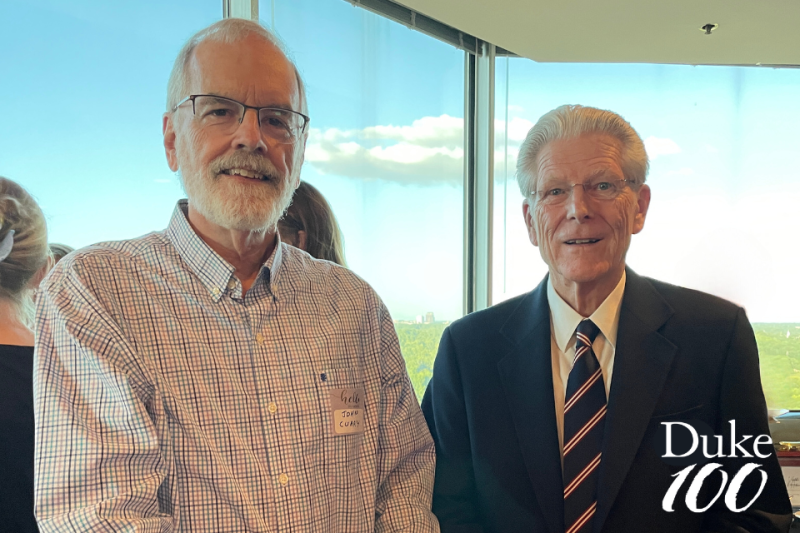
Timothy Strauman, PhD, joined the Duke faculty in 2000, enticed by the robust and enduring collaboration between the Department of Psychology & Neuroscience and the Department of Psychiatry & Behavioral Sciences.
“I came to Duke because of this unique relationship between psychology and psychiatry. It was really what attracted me,” reflected Strauman, a professor and former chair of Psychology & Neuroscience who also holds a faculty appointment in Psychiatry & Behavioral Sciences. “I came from a psychiatry department, but I had also been in an arts and sciences department, and what I really wanted was to be in a world where you could have both. And that’s what was going on here.”
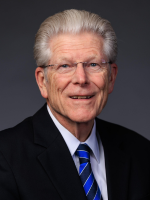
In many academic institutions, both then and now, the psychology and psychiatry departments operate as silos, noted Robert Thompson, Jr., PhD, a professor emeritus whose faculty appointments also straddled both departments. And in some cases, a university doesn’t have an affiliated medical center—or the medical center is located in a different city than the main campus, stymieing collaboration. The proximity of Duke’s graduate school and medical campuses, along with Duke’s longstanding culture of engagement across departments, set the stage early on for a fruitful psychiatry–psychology relationship.
“Duke has always been interdisciplinary in its focus, and I think that serves as a magnet,” said Thompson. “The types of people who come here are inclined to look across disciplinary boundaries and see that as value added.”
A Collaboration Blossoms
The partnership between the two departments took root in 1946, when Department of Psychology chair Elliott Rodnick, PhD, established Duke’s clinical psychology PhD program—just three years after the Department of Psychiatry was founded. The graduate students received practical training at Duke University Hospital and other Duke clinical facilities, and faculty from both departments oversaw a series of courses and practicum experiences.
Shortly thereafter, “a fairly intensive program of research activities was undertaken involving the collaboration of the psychologists and the psychiatrists in the Department of Psychiatry,” wrote former Department of Psychiatry chair Ewald W. Busse, MD, in an unpublished department history. Joint research studies began with graduate students’ doctoral dissertations; before long, faculty members in each department, along with psychiatry and psychology trainees, were working together on studies.
Standing the Test of Time
Nearly 80 years later, the clinical, education, and research collaboration has continued to thrive.
Clinical psychology PhD students, required to complete three year-long clinical practica, receive almost all of their patient-focused training in psychiatry-affiliated Duke Health clinics, such as the pediatric neuropsychology clinic, the cognitive behavioral therapy/dialectical behavior therapy program, and the cancer behavioral management and support clinic.
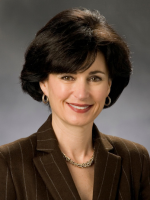
Through some of these clinical rotations, doctoral students work and learn alongside psychiatry residents and psychology doctoral interns based in Psychiatry & Behavioral Sciences. Associate emeritus professor Karen Wells, PhD, who led the clinical psychology doctoral internship program from 1997 to 2016, noted the benefits these multidisciplinary experiences afforded trainees: “There’s a mutual sharing of what training is like on each side, and then a coming together with the mindset of, ‘We’re going to be a team now and we’re going to bring the strengths from both sides to the team.’ That kind of sharing is very helpful in preparing trainees, because once they graduate, if they go into a clinical setting, they’re going to be working with people from different disciplines.”
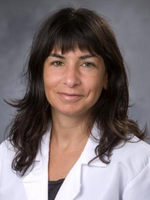
In addition to serving as clinical supervisors, a number of Psychiatry & Behavioral Sciences faculty members also hold appointments in Psychology & Neuroscience, teaching undergraduate and graduate psychology courses, mentoring students in research, and serving in psychology program leadership roles. In fact, several faculty members with primary appointments in Psychiatry & Behavioral Sciences have led the clinical psychology PhD program over the years; Nancy Zucker, PhD, professor of psychiatry and behavioral sciences, currently serves as director of graduate studies in Psychology & Neuroscience.
“The psychologists in the medical center had a lot to contribute to—but also had an enormous amount to gain from—the clinical psychology doctoral program,” Thompson reflected. “It wasn't just the financial support where they're teaching graduate and undergraduate courses, but also being able to, as PhD supervisors, take on graduate students. This added a level of scholarly engagement in the clinical work that was really phenomenal.”
Support from Duke’s Medical Community
As psychologists based in Psychiatry & Behavioral Sciences enjoyed the strong support and collegiality of their Psychology & Neuroscience counterparts, their expertise and contributions were likewise embraced by their physician colleagues in Psychiatry & Behavioral Sciences, as well as by the School of Medicine and Duke University Health System.
Wells recalls, “When I came to Duke [in 1989], I was astounded at how different the culture felt [from her previous institution] in terms of respect for me as a psychologist, my place in the psychiatry department, and the kinship that I felt with psychiatry faculty. It didn’t matter whether you had an MD or a PhD behind your name with regard to the way you were treated, the respect that you were afforded, or who wanted to collaborate with you.”
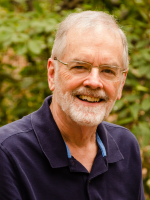
John Curry, PhD, emeritus professor of psychiatry and behavioral sciences, fondly recalls conducting multi-site clinical trials with Wells and their physician peers—a period he considers the peak of his career. “We were doing interdisciplinary work that really mattered. We were working with psychologists and psychiatrists and social workers from Duke and other institutions, and the research had an impact,” he said.
This steadfast institutional support for psychology was not the norm among academic medical centers in the mid- to late 1900s. Duke University was among the first institutions to formalize its support of psychologists as both researchers and clinicians.
Leadership in Medical Psychology
The field of medical psychology emerged in the 1950s as psychologists began to operate in medical schools and then medical centers, said Thompson. “It was the initial representation of two disciplines, medicine and psychology, coming together,” he added.
In 1957, Psychiatry & Behavioral Sciences established the Division of Medical Psychology, with Louis Cohen, PhD, as the inaugural director and Oscar Parsons, PhD, as the assistant director. All psychologists working in a clinical capacity at Duke were appointed in this division.
“Having this division structure turned out to be extremely influential, because it gave us quality control over the recruitment, salaries, and promotion and advancement requirements for psychologists,” noted Thompson, who served as chief of the division from 1978 to 1997. “Most psychiatry departments did not have a ‘structural home’ like this, even in the 1970s—they had psychologists embedded in whatever other structures the department had. And because we had that structural home, when clinical privileges for psychologists were such an adversarial issue around the country, it was not adversarial at Duke.”
“Most psychiatry departments did not have a ‘structural home’ like this, even in the 1970s—they had psychologists embedded in whatever other structures the department had. And because we had that structural home, when clinical privileges for psychologists were such an adversarial issue around the country, it was not adversarial at Duke.”
— Robert Thompson, PhD
Meanwhile, a year earlier in 1956, the department established its clinical psychology doctoral internship program for fifth-year PhD students—the first year the American Psychological Association began accrediting these programs. That year, six interns were admitted; today, the program has grown to 10 interns per year.
Although psychologists had been serving in clinical roles at Duke for many years, it wasn’t until 1982—25 years after the founding of the Division of Medical Psychology—that their clinical services and privileges were formalized and a structure established for their initiation and renewal. According to Busse’s unpublished department history, this development was “influenced by the definitions contained in the North Carolina Practicing Psychologist Licensing Act.”
This development made Duke University one of only 16 of the 123 medical schools with bylaws that enabled psychologists to be full voting members of the medical staff, as of 1983. (Thompson & Matarazzo, 1984) Thompson noted in another publication, “Among the responsibilities afforded the hospital medical staff are two of major importance: (a) to monitor and evaluate the quality of patient care, and (b) to develop rules, regulations, and policies regarding medical staff membership and the granting, delineating, and renewal of clinical privileges.” (Thompson, 1987)
The Division of Medical Psychology was disbanded in 2014 as the department’s organizational structure evolved and the term “medical psychology” faded in usage, in favor of terms such as “clinical psychology,” “health psychology” and “behavioral medicine.” But support for psychology remains exceptionally strong in the department and across Trinity College, the School of Medicine, and the health system. The number of psychologists in Psychiatry & Behavioral Sciences has grown from 27 in 1975 to 111 today, about 10 percent of whom also hold appointments in Psychology & Neuroscience.
Reflecting on a Rich History

Strauman is grateful for the “collective wisdom over the years that people have the good sense to nurture this collaboration through many leadership changes, changes in NIH funding structures, and changes in graduate training.” He appreciates that leaders from both departments have always valued the partnership and seen it as mutually beneficial.
Wells adds, “There seems to have been a focus on this value that collaboration is good and that good things happen when smart, creative people work together. That values-based approach has been palpable, and I think that’s been very important.”
Indeed, this collaboration embodies Duke’s deeply embedded interdisciplinary culture:
Duke has invested in interdisciplinary inquiry and education almost from the moment that James B. Duke’s 1924 gift transformed Trinity College into a major research university … Over the last half-century, interdisciplinarity has steadily become a more important focal point at Duke. The major strategic plans developed over that period articulated interdisciplinarity as a compelling aspiration, and eventually as a notable advantage.
Without a doubt, the university, the health system, undergraduate and graduate programs, internship training, and the fields of psychology and psychiatry will all keep evolving. But with the strong foundation laid by decades of leaders and faculty members across the two departments, the collaboration will likely not only continue to prosper but also serve as a model for exemplary interdisciplinary engagement.
Psychology Faculty & Former Trainees Share Reflections on the Collaboration

Miriam “Mimi” Feliu, PsyD
Associate Professor in Psychiatry and Behavioral Sciences, Duke University School of Medicine
Dr. Feliu has been at Duke since 2002, first as a practicum student during her PhD program, then as an intern and postdoctoral fellow before joining the faculty
The psychology collaboration at Duke has been a wonderful experience for me throughout the years, having had the opportunities in academia for clinical work, research, and education and training with collaboration from psychiatric advances and research in psychology. Learning from the research of our own peers and being able to use application of basic research through interaction and interdisciplinary approaches have provided for excellence in clinical work and development of best practice as well as a better understanding of the field. I believe that the opportunity to supervise and train is one of the best ways to learn incorporating aspects of both psychology and psychiatry.

Danielle R. Busby, PhD
Assistant Professor, Department of Psychiatry and Behavioral Sciences, University of Texas Medical Branch
2016 graduate of Clinical Psychology Doctoral Internship
The collaboration between psychology and psychiatry at Duke significantly enriched my clinical psychology training by fostering a comprehensive, interdisciplinary approach to care that valued both fields equally. Experiencing the natural intersection of psychology and psychiatry in practice allowed me to deepen my understanding of the biological aspects of mental health, which naturally complemented my training in psychological theory and interventions.
My specific focus on child trauma and suicide risk was greatly enhanced by this holistic approach to treatment, which not only improved patient outcomes but also strengthened my professional relationships and skills. I deeply value my experiences at Duke and look forward to the “full circle” moment of returning as a faculty member in the coming months.
Scenes from a Celebration

Top left: Nicole Heilbron, chief psychologist in Duke Psychiatry & Behavioral Sciences, addresses the 130+ guests at the reception.
Top right: (left to right) Psychologists Keisha Gaye-O'Garo, PsyD, and Nicole Heilbron, PhD, and Duke Psychiatry & Behavioral Sciences chair Moira Rynn, MD.
Bottom left: (left to right) Clinical psychology doctoral internship alumnus Joshua Nwosu, PhD ('20), who traveled from Maryland for the reception, and internship director Chris Mauro, PhD.
Bottom right: Frank Keefe, PhD, long-time professor of psychiatry and behavioral sciences, presented Psychiatry Grand Rounds, "The Psychology of Pain: Past, Present, and Future."